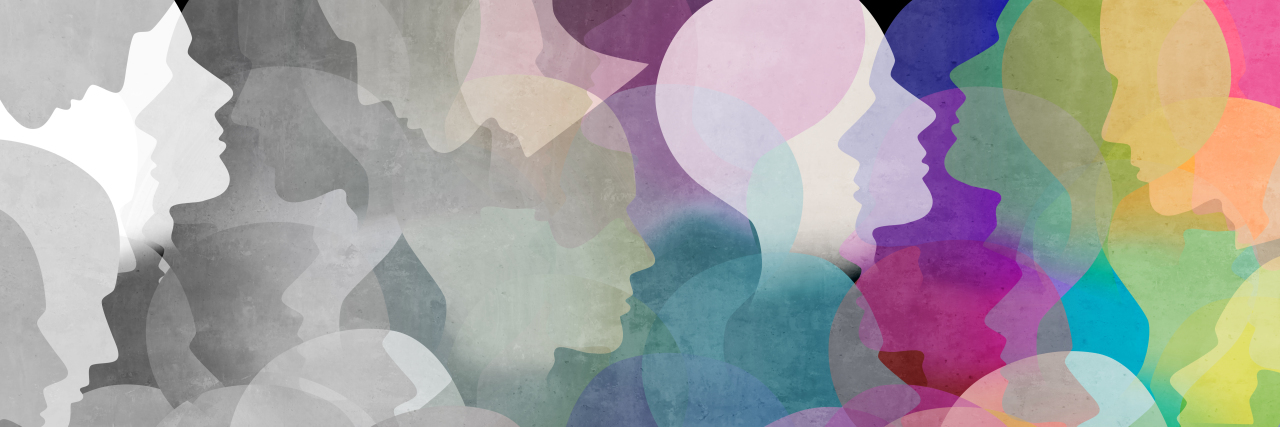Paradigm shift: Noun. A fundamental change in approach or underlying assumptions.
The world is full of paradigm shifts.
At one point in time, everyone alive believed the world was flat. Then a couple of Greek guys named Pythagoras and Aristotle began theorizing about a round earth, and people’s thinking began to change. Christopher Columbus is generally credited with proving the earth was round when he sailed around the world, but let’s just say he had a little help from the ancient Greek philosophers.
After Columbus sailed the ocean blue, the world underwent a paradigm shift and we all now know the world is indeed round.
Today the world is undergoing another paradigm shift, only this time it’s taking a bit longer to spread the word and convince people of the shift. I’m talking about the shift from the medical model of autism and other issues surrounding the brain to the neurodiversity paradigm, or neurodiversity movement.
What’s the difference, and why should you care? I’m glad you asked.
According to the medical model, we, and I include myself in this group as I was diagnosed with Asperger’s (now ASD) almost 10 years ago, are broken individuals and don’t fit in with the majority of the population. That majority has what we call typically developing brains, and they’re known as Neurotypicals or NTs.
Those of us on the autism spectrum, with ADHD, dyslexia, bipolar, and eating disorders, among other conditions, are considered neurologically divergent, or Neurodivergent. Now, I don’t know about you, but I’m proudly autistic, which means I’m proudly Neurodivergent.
I’m OK with being different than most people because that means I get to be the authentic me — purple goatee, “ASPERGER’S” tattooed across my forearm, and everything else that makes me, me.
The medical model focuses on what Neurodivergents can’t do. They look at our shortcomings, and they tell parents to strap in and keep their hands and feet safely inside the car, because it’s going to be a long, bumpy ride that ends with the Neurodivergent person not amounting to anything.
In its simplest form, they’re blowing smoke up your @$$.
The neurodiversity movement, on the other hand, is led mainly by self-advocates, parents of Neurodivergent children, and a growing number of openly autistic doctors and researchers. This movement focuses on our strengths — what we can do and what we can accomplish.
I’m a big fan of Neurodiversity and a huge self-advocate for it because of the focus on the positive. For the majority of my life, I’ve heard nothing but negativity about myself. I still do, though now it’s mixed in with some positive.
Every week I hear from parents of children on the spectrum about how they’re afraid their child will never amount to anything. They actually believe that to be true because they hear it from their child’s mental health professionals over and over again.
It infuriates me to hear medical professionals talk about the shortcomings in our lives, because they’re simply not true. Can I do everything that someone with a neurotypical brain can do? No. Can they do what I can do? Absolutely not.
When I speak, I like to say Neurodivergent people are like a Mac in a PC world. We have different operating systems, but at the end of the day, we still get the job done.
Don’t get me wrong, I’m not bashing the medical model as a whole, because without the research that comes from doctors and researchers, we wouldn’t know what we know about autism and the other things that make us Neurodivergent. Where I have a problem with the medical model is with the focus on the negative.
If autism is such a bad thing, then why was I excited and relieved after my diagnosis? And why, as I read, listened to, and watched content from others on the spectrum, did I feel better about myself and my place in society? In the past, when I was told I could never live up to my potential, or that I was somehow broken, I would believe it. Now? I just laugh it off and think, “Some people will just never get it.”
Will the paradigm fully shift in my lifetime? Hopefully, but probably not. But those of us advocating for change are going to continue to lay the groundwork for those who come after us!
I would love to hear from you. Where do you stand? Are you more likely to support the medical model, or are you more of a Neurodiversity fan?
This story originally appeared on Not Weird Just Autistic.
Getty image by wildpixel.

